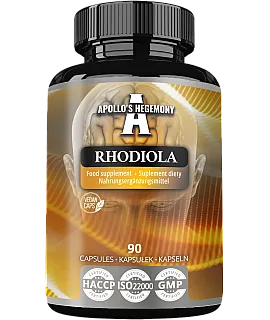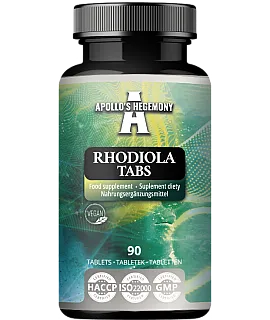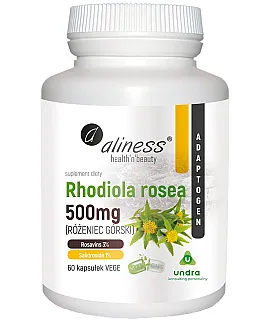Rhodiola: supplementation, properties
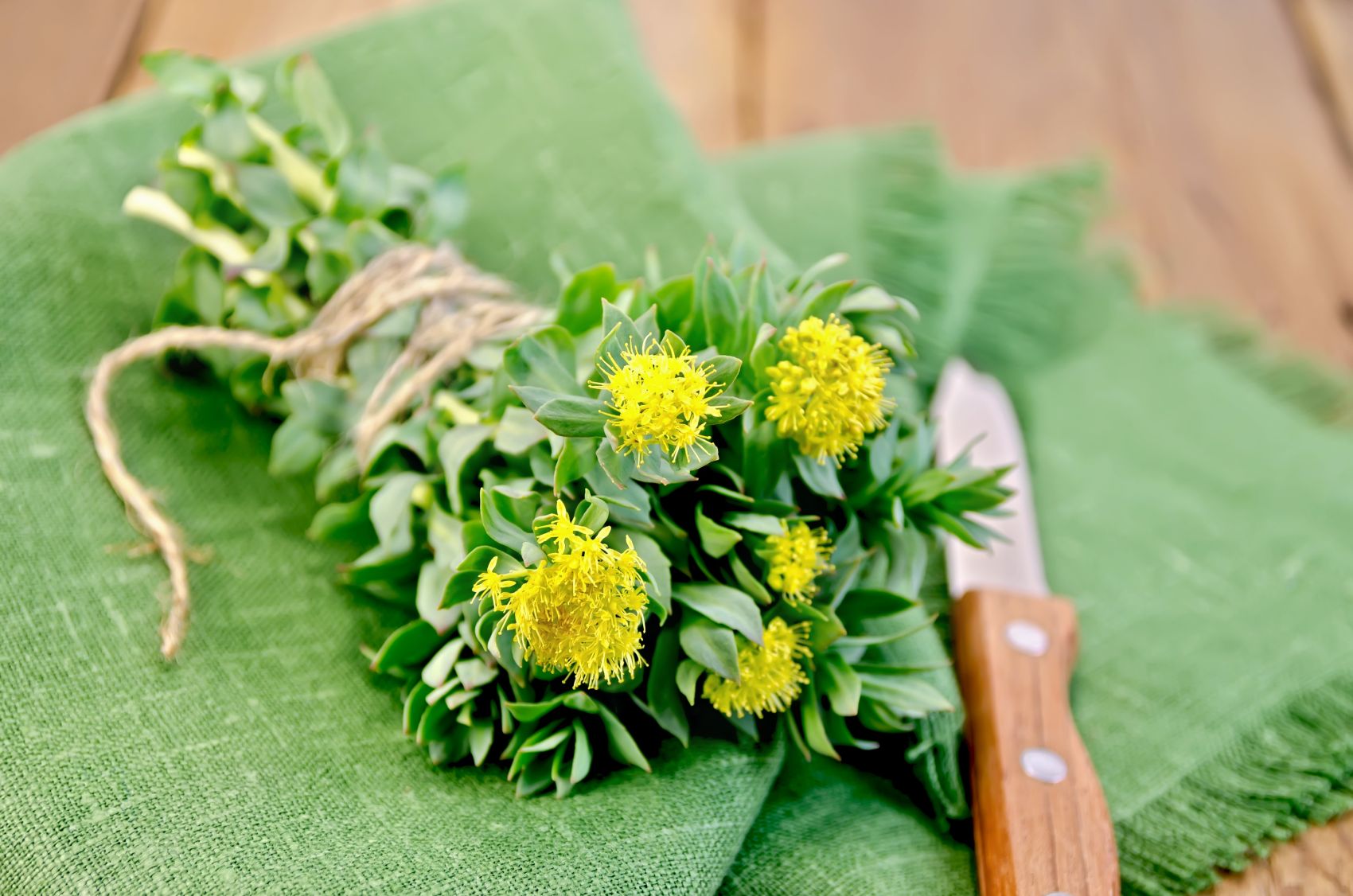
More energy and less fatigue without caffeine? Why not! In telegraphic terms, these are the effects expected from Rhodiola rosea supplementation. This Arctic root is known for its adaptogenic and body-strengthening properties on many levels. With regular supplementation, it reduces feelings of fatigue and can raise overall vigor levels, adding motivation to live life to the fullest.
- Adaptogenic properties of Rhodiola rosea
- Dosage of supplements with Rhodiola rosea
- Are there any contraindications?
- Is it worth using Rhodiola rosea tablets?
Adaptogenic properties of Rhodiola rosea
Life is not one-size-fits-all, and each of us occasionally enters a heavier, more stressful period. Traditional medical systems around the world used to have herbal preparations to support the body in difficult circumstances. Today we call them adaptogens.
One of the most distinctive adaptogens that was traditionally used among European and Asian peoples was the root of the Rhodiola rosea plant harvested in high mountainous areas. It now has strong support of efficacy in the literature, mainly due to the work of Scandinavian and Soviet scientists. Russian and Swedish authorities decades ago already recognized Rhodiola preparations as medicinal products with a stimulating and anti-fatigue profile.
Rhodiola rosea's properties mainly include mood-enhancing effects with stress reduction and physical strengthening, but it has also been attributed with anti-aging, anti-inflammatory, immune-stimulating, DNA-regenerating, anti-cancer properties, but it has also been used for anemia and impotence.
Energy and physical enhancement - a treat for athletes
According to the esteemed HMPC(Committee on Herbal Medicinal Products), Rhodiola rosea root can be used to temporarily relieve symptoms of stress, including feelings of fatigue and weakness. Frequent and intense sports training is undoubtedly a severe stress for the body. The last few years have seen adaptogens increasingly appear in the supplement schedules of athletes - both amateurs and professionals.
Rhodiola rosea is one of those adaptogens that perform exceptionally well in people with increased physical activity. What is of great importance in this context - the action of Rhodiola, in addition to normalizing the hormonal response to stress, also involves the activation of ATP synthesis in the mitochondria. More efficient supply of cells with energy is a great asset for active people.
Many studies confirm an attenuating effect on feelings of mental fatigue on a daily basis and feelings of burnout in different groups of people. This parameter is very important for athletes who routinely have to perform hard workouts and need to keep their motivation high. However, it is a universal property that can benefit anyone struggling with frequent fatigue, including people who work mentally.
Studies have tested the effects of Rhodiola supplementation specifically on athletes. In addition to the effects on psychological state and feelings of fatigue, more physical parameters were also evaluated. An increase in time to fatigue onset with different types of exercise and a change in post-workout concentrations of CRP, a marker of inflammation, were noted.
Stable emotions and well-being
The components of Rhodiola (mainly salidrosides, rosavins and tyrosol) have a broad profile of action - they affect both rapid biochemical changes and long-term effects by influencing the expression of more than 1,000 different genes, many of which are responsible for mood regulation. Some of Rhodiola's ingredients act as monoamine oxidase inhibitors. This is an enzyme that metabolizes monoamines (serotonin, dopamine, norepinephrine) responsible for good mood. When its action is inhibited thanks to Rhodiola, the availability of "happiness molecules" in the brain can increase. For this reason, Rhodiola rosea extract is often treated as a mild, natural antidepressant, used for mild mood drops that do not require the care of a medical specialist.
Dosage of supplements with Rhodiola rosea
For supplements that have 500 mg of extract per capsule (the most common case), 1 capsule every morning is usually sufficient. This applies to both 3% salidroside and 3% rosavin + 1% salidroside extracts. In this case, a higher dose will not necessarily bring greater benefits.
For best results, Rhodiola should be taken daily for several months to develop its full potential, although even 2-week cycles at the most stressful times are considered effective.
Are there any contraindications?
The strongest contraindication is interactions with medications. Due to the action of Rhodiola's ingredients as an iMAO, there may be an enhancement of the effects of antidepressants and some other neurological, psychiatric or anesthetic drugs.
Overall, Rhodiola rosea tablets are well tolerated and have no characteristic side effects.
Is it worth using Rhodiola rosea tablets?
Tablets, capsules and other forms of supplementation for many people will bring very cool benefits. If the need for physical and mental strengthening arises, and there are no concomitant medications taken, interacting, then it is worth trying Rhodiola rosea. Effective doses are not large, and an average pack of the supplement lasts for 2-3 months, which can already give a noticeable and attractive effect. The safety profile is also very favorable. It is hard to find reports of reproducible side effects, and the overall profile of the plant is very conducive to overall health.
If the effects of Rhodiola rosea are satisfactory, but an appetite for enhancement arises, consider combining it with other emergent adaptogens, such as:
- Peruvian maca
- Cordyceps sinensis mushroom
- Siberian ginseng
Sources:
- Yonghong Li et al. "Rhodiola rosea L.: an herb with anti-stress, anti-aging, and immunostimulating properties for cancer chemoprevention" Curr Pharmacol Rep. 2017 Dec; 3(6): 384-395.
- Hung SK et al. "The effectiveness and efficacy of Rhodiola rosea L.: a systematic review of randomized clinical trials." Phytomedicine. 2011 Feb 15;18(4):235-44.
- Anghelescu IG et al. "Stress management and the role of Rhodiola rosea: a review." Int J Psychiatry Clin Pract. 2018 Nov;22(4):242-252.
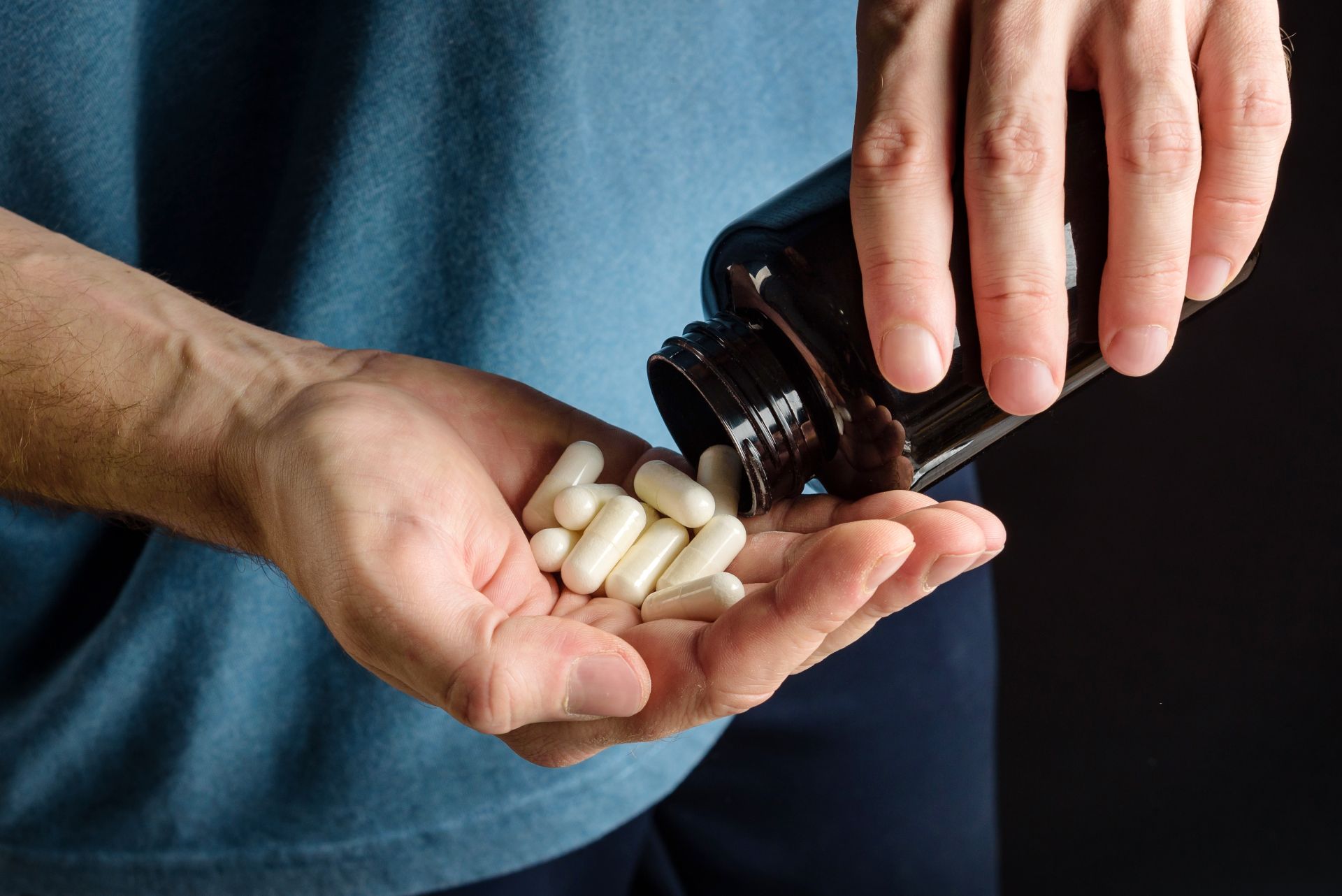 ⮜ Previous article
⮜ Previous article
Kanna vs. energy - what are the relationships?
 Next article ⮞
Next article ⮞
